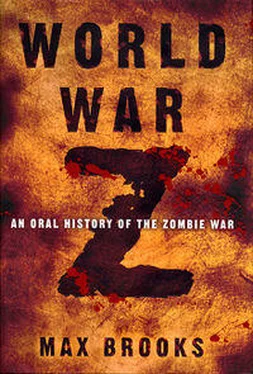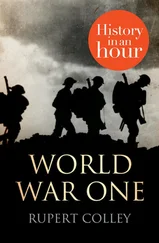Why is that?
Because, as the saying went, “We didn’t leave America. America left us.” There’s a lot of truth to that. We deserted those people. Yes, we left some Special Forces volunteers, tried to supply them by sea and air, but from a purely moral standing, these people were truly abandoned. I couldn’t blame them for wanting to go their own way, nobody could. That’s why when we began to reclaim lost territory, we allowed every secessionist enclave a chance for peaceful reintegration.
But there was violence.
I still have nightmares, places like Bolivar, and the Black Hills. I never see the actual images, not the violence, or the aftermath. I always see my boss, this towering, powerful, vital man getting sicker and weaker each time. He’d survived so much, shouldered such a crushing burden. You know, he never tried to find out what had happened to his relatives in Jamaica? Never even asked. He was so fiercely focused on the fate of our nation, so determined to preserve the dream that created it. I don’t know if great times make great men, but I know they can kill them.
[Joe Muhammad’s smile is as broad as his shoulders. While his day job is as the owner of the town’s bicycle repair shop, his spare time is spent sculpting molten metal into exquisite works of art. He is, no doubt, most famous for the bronze statue on the mall in Washington, D.C., the Neighborhood Security Memorial of two standing citizens, and one seated in a wheelchair.]
The recruiter was clearly nervous. She tried to talk me out of it. Had I spoken to the NRA representative first? Did I know about all the other essential war work? I didn’t understand at first; I already had a job at the recycling plant. That was the point of Neighborhood Security Teams, right? It was a part-time, volunteer service for when you were home from work. I tried explaining this to her. Maybe there was something I wasn’t getting. As she tried some other half-hearted, half-assed excuses, I saw her eyes flick to my chair.
[Joe is disabled.]
Can you believe that? Here we were with mass extinction knocking on the door, and she’s trying to be politically correct? I laughed. I laughed right in her face. What, did she think I just showed up without knowing what was expected of me? Didn’t this dumb bitch read her own security manual? Well, I’d read it. The whole point of the NST program was to patrol your own neighborhood, walking, or, in my case, rolling down the sidewalk, stopping to check each house. If, for some reason, you had to go inside, at least two members were always supposed to wait out in the street. [Motions to himself.] Hello! And what did she think we were facing anyway? It’s not like we had to chase them over fences and across backyards. They came to us. And if and when they did so, let’s just say, for the sake of argument, there was more than we could handle? Shit, if I couldn’t roll myself faster than a walking zombie, how could I have lasted this long? I stated my case very clearly and calmly, and I even challenged her to present a scenario in which my physical state could be an impediment. She couldn’t. There was some mumbling about having to check with her CO, maybe I could come back tomorrow. I refused, told her she could call her CO, and his CO and everyone right up to the Bear himself, but I wasn’t moving until I got my orange vest. I yelled so loud everyone in the room could hear. All eyes turned to me, then to her. That did it. I got my vest and was out of there faster than anyone else that day.
Like I said, Neighborhood Security literally means patrolling the neighborhood. It’s a quasi-military outfit; we attended lectures and training courses. There were designated leaders and fixed regulations, but you never had to salute or call people “sir” or shit like that. Armament was pretty nonregulation as well. Mostly hand-to-hand jobs-hatchets, bats, a few crowbars and machetes-we didn’t have Lobos yet. At least three people in your team had to have guns. I carried an AMT Lightning, this little semiauto .22-caliber carbine. It had no kick so I could shoot without having to lock down my wheels. Good gun, especially when ammo became standardized and reloads were still available.
Teams changed depending on your schedule. It was pretty chaotic back then, DeStRes reorganizing everything. Night shift was always tough. You forget how dark the night really is without streetlights. There were barely any houselights, too. People went to bed pretty early back then, usually when it got dark, so except for a few candles or if someone had a license for a generator, like if they were doing essential war work from home, the houses were pitch-black. You didn’t even have the moon or the stars anymore, too much crap in the atmosphere. We patrolled with flashlights, basic civilian store-bought models; we still had batteries then, with red cellophane on the end to protect our night vision. We’d stop at each house,
knock, ask whoever was on watch if everything was okay. The early months were a little unnerving because of the resettlement program. So many people were coming out of the camps that each day you might get at least a dozen new neighbors, or even housemates.
I never realized how good we had it before the war, tucked away in my little Stepford suburbistan. Did I really need a three-thousand-square-foot house, three bedrooms, two baths, a kitchen, living room, den, and home office? I’d lived alone for years and suddenly I had a family from Alabama, six of them, just show up at my door one day with a letter from the Department of Housing. It’s unnerving at first, but you get used to it quickly. I didn’t mind the Shannons, that was the family’s name. We got along pretty well, and I always slept better with someone standing watch. That was one of the new rules for people at home. Someone had to be the designated night watchman. We had all their names on a list to make sure they weren’t squatters and looters. We’d check their ID, their face, ask them if every-thing was all quiet. They usually said yes, or maybe reported some noise we’d have to check out. By the second year, when the refugees stopped coming and everyone got to know each other, we didn’t bother with lists and IDs anymore. Everything was calmer then. That first year, when the cops were still re-forming and the safe zones weren’t completely pacified…
[Shivers for dramatic effect.]
There were still a lot of deserted houses, shot up or broken into or just abandoned with the doors left wide open. We’d put police tape across all doorways and windows. If any of them were found snapped, that could mean a zombie was in the house. That happened a couple of times. I’d wait outside, rifle ready. Sometimes you’d hear shouts, sometimes shots. Sometimes, you’d just hear a moan, scuffling, then one of your teammates would come out with a bloody hand weapon and a severed head. I had to put a few down myself. Sometimes, when the team was inside, and I was watching the street, I’d hear a noise, a shuffling, a rasping, something dragging itself through the bushes. I’d hit it with the light, call for backup, then take it down.
One time I almost got tagged. We were clearing a two-story job: four bed, four bath, partially collapsed from where someone had driven a Jeep Liberty through the living room window. My partner asked if it was cool to take a powder break. I let her go behind the bushes. My bad. I was too distracted, too concerned with what was going on inside the house. I didn’t notice what was behind me. Suddenly there was this tug on my chair. I tried to turn, but something had the right wheel. I twisted, brought my light around. It was a “dragger,” the kind that’s lost its legs. It snarled up at me from the asphalt, trying to climb over the wheel. The chair saved my life. It gave me the second and a half I needed to bring my carbine around. If I’d been standing, it might have grabbed my ankle, maybe even taken a chunk. That was the last time I slacked off at my job.
Читать дальше












